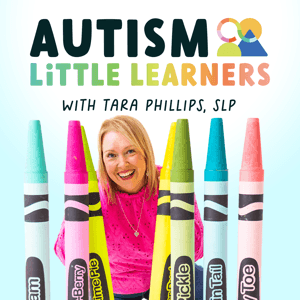ABOUT THIS EPISODE (+ scroll for resources) 👇
In this episode, Dr. Tay emphasizes the importance of supporting parents in the autistic journey. Joined by Lisa Candera, a single mom and coach for parents of autistic children, they discuss the role of parents as primary co-regulators for their children as well as strategies for staying regulated, building self-trust, and supporting their children's behaviors. They also explore systemic issues, coping mechanisms, and the need for a holistic approach that includes listening to autistic voices. Despite the focus on parents, the core message underscores the importance of a balanced support system for the entire family unit.
00:00 Introduction and Guest Welcome
00:28 Lisa Candera's Background and Passion
00:45 The Role of Parents in Autism Support
01:28 Podcast Introduction and Disclaimer
02:30 Lisa's Journey as a Single Mom
05:25 Challenges and Early Diagnosis
06:48 Navigating Resources and Support Systems
08:27 The Importance of Parental Education
16:04 Understanding OCD and Autism
22:59 Coaching and Self-Regulation
28:21 Understanding the Distinctness of OCD
28:30 The Complexity of Compulsions
29:01 Parental Instincts and Fix-It Mode
29:31 The Illogical Nature of OCD
30:06 OCD and Autism: The Just Right Feeling
31:22 Building Acceptance in Parenting
32:22 The Psychological Definition of Acceptance
33:46 Behavioral Issues and Parental Pressure
35:05 Supporting Parents: Tips and Strategies
37:24 Validating Experiences Before Problem Solving
38:01 Common Challenges and Seeking Support
39:21 Navigating Grief and Acceptance
40:02 Ambiguous Grief and GOMO
41:17 Being the Safe Person and Self-Advocacy
44:31 Parental Regulation and Child's Behavior
46:36 Building a Well-Rounded Support Team
48:29 The Power of Tone and Voice
52:12 Conclusion and Resources
RESOURCES
⚡️ Continue learning from Lisa Candera at theautismmomcoach.com/ and @theautismmomcoach on Instagram and Facebook
⚡️ Download the Meltdown Action Plan
⚡️ Join EVOLVE: The Membership — a neurodiversity-affirming space for parents to find community, support, and ongoing learning on this journey.
⚡️ Learn more about Dr. Tay’s Whole Family Approach + current services at drtaylorday.com
⚡️ Continue learning + submit questions for future episodes:
Instagram → @the.dr.tay
TikTok → @the.dr.tay



































